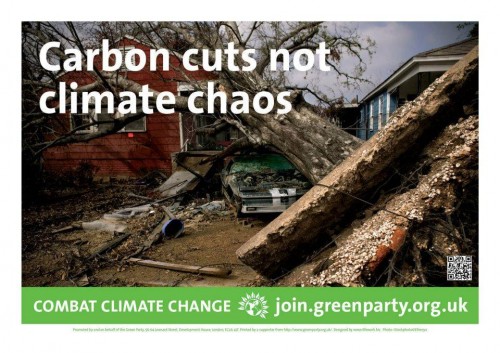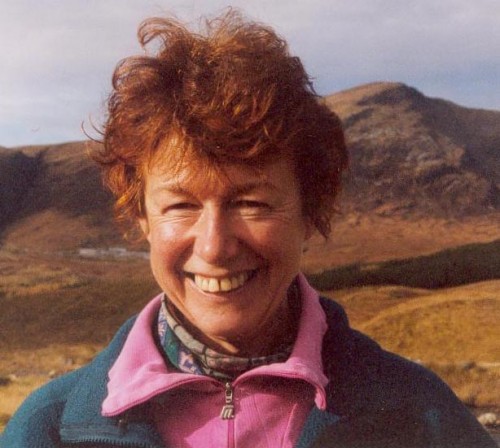Sheffield Green Party members Heather Hunt and Nick Nuttgens are currently in Paris for the Climate talks.
Heather writes
Another world is possible, necessary and urgent. This is the message coming through loud and clear, not from the official cop21 but from the climate action zone where we are with people from all over the world concerned about life, livelihoods and the well being of all.
Every evening we hear depressing updates from the official talks. The voluntary emission reduction targets countries have promised so far go nowhere near the 2 degrees further rise in global temperatures scientists say is the maximum to avoid climate chaos. Rights of indigenous people have been taken out of the main text as has a commitment to a just transition to a low carbon economy. The substantive text centres on extending carbon markets and negotiations, with 48 hours to go, centre on whether the review date should be 8 or 9 years away. I am realising the interests of the corporations are superseding the needs of people all over the world, and our life support systems now and into the future.
In contrast at the climate action zone I am inspired by a network pf women from sub Saharan Africa who tell, not only how droughts and floods are massively affecting their lives and livelihoods, but also how big mining companies and transnationals engaged in export crops are taking over and polluting their land. They are not asking for aid, but organising and asking for solidarity to get the corporations out of their land, to receive compensation for the damage, to set a ceiling of 1.5 degrees temperature rise and support for community controlled, nature friendly farming and fishing.
On the metro this morning I met a Peruvian farmer wearing a via campesina scarf with his German friend. I learnt the farmer is taking out a law suit, supported by a top German lawyer, against a big German fossil fuel company for its contribution to the melting of the glaciers in the Andes which are depriving his land of water. I learn there is now an International network of environmental lawyers taking up similar cases.
Our solidarity today has taken a creative bent. We took our black umbrellas to the Louvre, which is being sponsored by Total and Eni. Through the instigation of “Oil out of Art” we staged a performance with our umbrellas spelling out “Fossil Free Culture” . While inside the Louvre half a dozen climate campaigners danced bare foot through spilt dark brown paint leaving oil like footprints on the marble floor.
I continue to be moved by meeting people from countries already affected by climate change and heartened by their resilience. I am learning how nature friendly, community controlled ,ways can cool our planet. I am aware the official talks are not bearing their lives or livelihoods in mind. I am realising our call for climate justice is not to our leaders at cop21 but it is to ourselves. Here we are sharing ways we can cool the planet, live cooperately and be creative. I am encouraged by the many international movements that are growing that we can be part of beyond cop21 in working for a planet where we can all not just be alive but thrive.
I’m just finishing now to make my banner, 1.5 for all to stay alive.
Nick writes
 While the formal negotiations have been taking place in closed sessions at Le Bourget, Paris during COP21 has been buzzing with talks, debates and art events that the public can access. I spent two days attending debates at Climate Generations, the public area at Le Bourget; other days I went to the alternative conferences being held in the suburb of Montreuil and at the 104 Arts Centre which has been designated a Climate Action Zone.
While the formal negotiations have been taking place in closed sessions at Le Bourget, Paris during COP21 has been buzzing with talks, debates and art events that the public can access. I spent two days attending debates at Climate Generations, the public area at Le Bourget; other days I went to the alternative conferences being held in the suburb of Montreuil and at the 104 Arts Centre which has been designated a Climate Action Zone.
The various talks and debates have enriched my understanding of the complexities of climate change. Our own University of Sheffield gave a presentation on its research into agriculture and food provision. There have been huge increases in food production since the 1970s but now we are reaching biological limits. Deep ploughing and over use of fertilisers have led to soil erosion and degradation which cannot easily be remedied. At the same time, we in the global north waste 30% of our food and over eat another 20% leading to widespread obesity. Solutions include more natural farming methods such as crop rotation and people eating less. The speakers believed that GM crops were also necessary, in complete contrast to many speakers at the alternative events calling for a return to peasant agriculture. Where both sides agreed was that industrial farming has been damaging for the land and for our health.
Another panel looked at how cities can lead the way in becoming carbon neutral. The South Australian minister, Ian Hunter, told an inspiring story of how, in 2007, the state had produced a green economy action plan with the participation of businesses, investors, academics and civic society groups. They set an initial target of 20% renewable energy but have already exceeded it and expect to reach 50% next year. In contrast, Eva Joly, MEP, earned that attempts to bring about carbon reduction were at risk in many cities and states because of corruption. One problem with the idea of carbon trading is that corrupt business, individuals DVD governments will manipulate it to siphon off money into their own bank accounts. In a similar vein, the 350.org organisation presented a mock trial of the oil company Exxon which included shocking evidence of it having funded climate deniers and even suppressed its own research into the dangers of global warming since 1978!
The most moving event I attended was one in which young people from developing countries spoke about the devastation already being caused by a great increase in flooding or forest fires. In Senegal, Nigeria, Zimbabwe and The Gambia, repeated floods have destroyed crops and washed away buildings. People have moved into schools, sometimes 50 to a classroom, thus preventing the children’s education. Millions are unemployed, so some have set off to look for work elsewhere. The young man from The Gambia had for friends who had died trying to reach Libya or Italy – one shot, three drowned. “They died a painful death,” he said, “because of climate change. They were just trying to make a living.”
Alongside all the political debate, there has been a rich programme of arts events in Paris – art, theatre and dance. I went to a presentation on the use of traditional Indonesian shadow puppets to tell traditional stories updated to raise issues around climate change. In contrast, a dance and text performance by a French company looked at the dilemmas we all face in the global north, trying to carve our meaningful and ethical lifestyles knowing that we are complicit in destroying nature. At one point an actor says: “in my apartment, the radio pours out a mass of information that I don’t know what to think about. I hear a rumour of worry but I can’t make any sense out of it.” Later he talks of a past climate summit when “a Philipino diplomat burst into tears in front of the cameras, explaining that if nothing was done, his country would be engulfed by the rising waters in a few decades. Between sobs, he called for climate justice – an appeal to which George Bush had already replied by saying: “Our way of life is non negotiable.”
These talks and performances have made me more aware that people’s lives are already being devastated by extreme weather events caused by climate change and that I for one have been turning a blind eye to their suffering. Grace, a young woman from Uganda, said to me: “I ask myself ‘why us’ and then I ask myself how people in the rich countries can do nothing about it.”
Still left to do is to join the demonstrations next Saturday which will take place despite the French government forbidding them. We know that the agreement produced by the negotiators will be celebrated as a great step forward but in reality will be inadequate to prevent further catastrophes. We need to aim to limit global warning to less than two degrees but the targets currently proposed are predicted to lead to nearly four. It’s frightening to think of perhaps being tear gassed or pepper sprayed as happened here two weeks ago but many of us feel that we can’t just say nothing.
Nick Nuttgens

